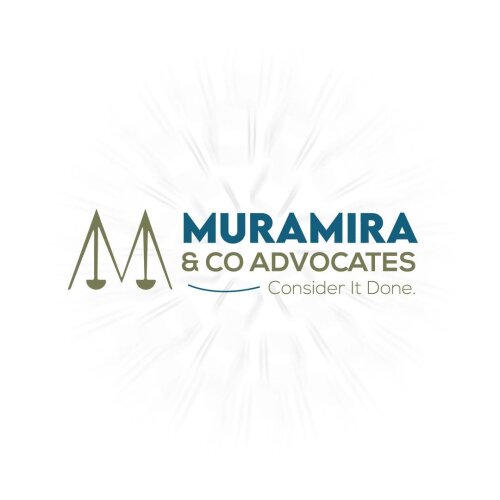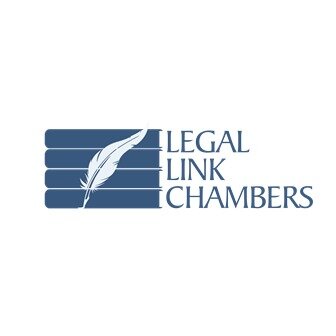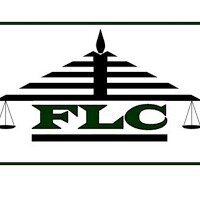Best General Litigation Lawyers in Rwanda
Share your needs with us, get contacted by law firms.
Free. Takes 2 min.
Or refine your search by selecting a city:
List of the best lawyers in Rwanda
About Litigation Law in Rwanda:
Litigation law in Rwanda is the legal process of resolving disputes between parties through the court system. It involves filing lawsuits, presenting evidence, and arguing cases in front of a judge. Litigation can cover a wide range of legal issues, including civil disputes, criminal cases, and administrative matters.
Why You May Need a Lawyer:
You may need a lawyer in Rwanda for various reasons, such as:
1. Filing a lawsuit or defending against one
2. Resolving contract disputes
3. Handling criminal charges
4. Seeking compensation for personal injuries
5. Navigating complex legal procedures
Local Laws Overview:
In Rwanda, the legal system is based on civil law and is governed by the Constitution and various statutes. Some key aspects of local laws relevant to litigation include:
1. The Civil Procedure Code
2. The Penal Code
3. The Commercial Code
4. The Labour Law
5. The Law on Land and Environment
Frequently Asked Questions:
1. What is the legal process for filing a lawsuit in Rwanda?
In Rwanda, the legal process for filing a lawsuit involves submitting a written complaint to the appropriate court, serving notice to the other party, and attending court hearings to present evidence and arguments.
2. How long does litigation typically take in Rwanda?
The duration of litigation in Rwanda can vary depending on the complexity of the case and the court's caseload. It is advisable to consult with a lawyer for a realistic timeline.
3. Can I represent myself in court in Rwanda?
Yes, you have the right to represent yourself in court in Rwanda, but it is recommended to seek legal assistance to ensure your rights are protected and to present your case effectively.
4. What are the costs involved in litigation in Rwanda?
The costs of litigation in Rwanda can include court fees, lawyer fees, and other expenses related to the legal process. It is advisable to discuss fees with your lawyer upfront.
5. Can I appeal a court decision in Rwanda?
Yes, you have the right to appeal a court decision in Rwanda. The appeal process involves submitting a written request to a higher court and presenting arguments for why the decision should be overturned.
6. What types of cases can be resolved through mediation in Rwanda?
In Rwanda, civil disputes, commercial disputes, and family matters can be resolved through mediation. The parties involved can agree to participate in mediation voluntarily or by court order.
7. How can I find a qualified lawyer in Rwanda?
You can find a qualified lawyer in Rwanda by contacting the Rwanda Bar Association, which maintains a directory of licensed attorneys. It is recommended to research and interview potential lawyers before making a decision.
8. What are the limitations on legal representation in Rwanda?
There are no specific limitations on legal representation in Rwanda, but lawyers are required to adhere to ethical standards and the law when representing clients.
9. Can I settle a legal dispute out of court in Rwanda?
Yes, you can settle a legal dispute out of court in Rwanda through negotiation, mediation, or arbitration. It is advisable to seek legal advice to ensure the settlement is legally binding.
10. What are the consequences of not complying with a court order in Rwanda?
Failure to comply with a court order in Rwanda can result in various consequences, such as fines, penalties, or even imprisonment. It is essential to take court orders seriously and seek legal advice if you are unable to comply.
Additional Resources:
For more information on litigation in Rwanda, you can visit the Rwanda Bar Association website or contact the Ministry of Justice for legal assistance. You can also consult legal aid organizations or international law firms for guidance.
Next Steps:
If you require legal assistance in litigation in Rwanda, it is recommended to consult with a qualified lawyer who can assess your case, provide legal advice, and represent you in court if necessary. Be prepared to discuss your situation, gather relevant documents, and follow your lawyer's guidance throughout the legal process.
Lawzana helps you find the best lawyers and law firms in Rwanda through a curated and pre-screened list of qualified legal professionals. Our platform offers rankings and detailed profiles of attorneys and law firms, allowing you to compare based on practice areas, including General Litigation, experience, and client feedback.
Each profile includes a description of the firm's areas of practice, client reviews, team members and partners, year of establishment, spoken languages, office locations, contact information, social media presence, and any published articles or resources. Most firms on our platform speak English and are experienced in both local and international legal matters.
Get a quote from top-rated law firms in Rwanda — quickly, securely, and without unnecessary hassle.
Disclaimer:
The information provided on this page is for general informational purposes only and does not constitute legal advice. While we strive to ensure the accuracy and relevance of the content, legal information may change over time, and interpretations of the law can vary. You should always consult with a qualified legal professional for advice specific to your situation.
We disclaim all liability for actions taken or not taken based on the content of this page. If you believe any information is incorrect or outdated, please contact us, and we will review and update it where appropriate.
Browse general litigation law firms by city in Rwanda
Refine your search by selecting a city.















